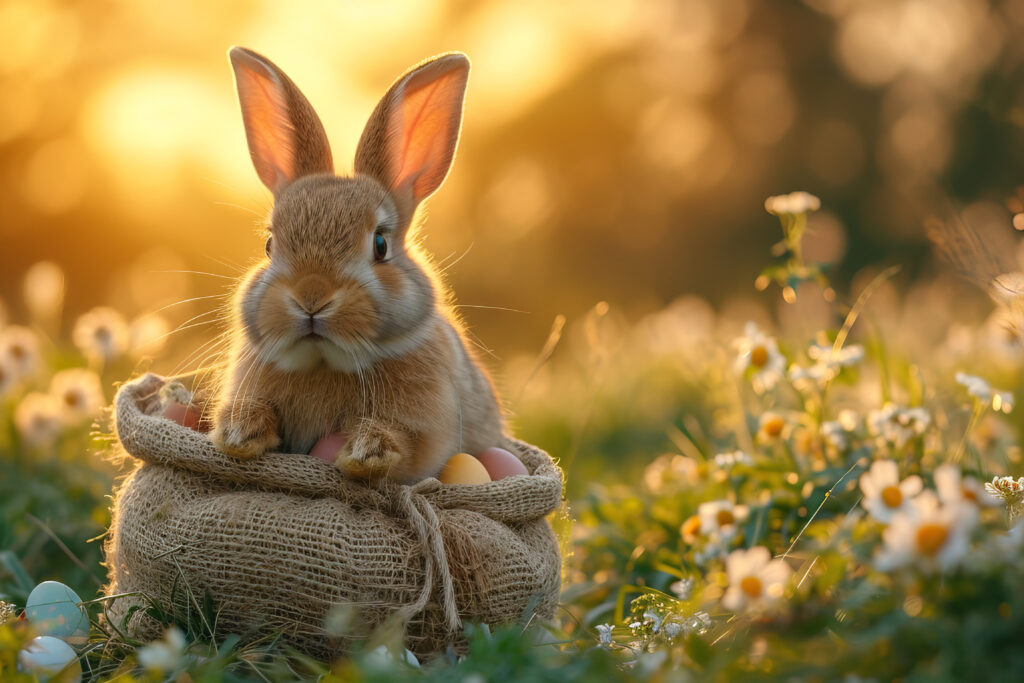Rabbits are delicate creatures, and as loving pet owners, it’s our responsibility to ensure their well-being. Since rabbits are naturally prey animals, they tend to hide their illnesses until they become severe. This makes it crucial for us to stay alert and recognize the early warning signs of illness. By identifying potential health problems in the initial stages, we can provide prompt treatment, increasing their chances of recovery.
1. Changes in Appetite and Drinking Habits
One of the earliest and most obvious signs that your rabbit might be sick is a change in its eating or drinking habits. Rabbits have delicate digestive systems and any disruption in their eating pattern should be a cause for concern.
Decreased Appetite
If you notice your rabbit suddenly stops eating its favorite foods, or if it leaves its hay or pellets untouched, this could indicate a gastrointestinal issue such as GI stasis. GI stasis occurs when the rabbit’s gut slows down or stops completely, which can be fatal if left untreated. This condition can be triggered by a lack of fiber, stress, or pain. A rabbit that refuses food for 12 hours or longer should be taken to the vet immediately.
Excessive Thirst or Lack of Water Intake
A significant increase in water consumption could point to issues like kidney disease or diabetes. On the other hand, if your rabbit is drinking less water than usual, it could indicate dehydration, pain, or fever. Monitoring water intake is vital, especially if your rabbit has been drinking less for more than a day.
2. Lethargy or Unusual Behavior
Healthy rabbits are usually active, curious, and playful. When a rabbit becomes suddenly lethargic, avoiding movement or interaction, it may be suffering from an illness.
Unwillingness to Move or Play
Lethargy can be a sign of pain, fever, or infection. Conditions such as dental disease, arthritis, or even respiratory infections can cause discomfort that makes your rabbit reluctant to move. You may also notice your rabbit is sitting hunched over, which often indicates abdominal pain.
Aggression or Withdrawal
Behavioral changes, such as aggression or hiding, are also signs of discomfort. If your normally friendly rabbit starts biting or refuses to be handled, it could be trying to communicate that it’s in pain. Similarly, hiding in corners or refusing to interact with you or other rabbits may indicate that something is wrong. Observing these subtle changes in behavior is essential in detecting early signs of illness.
3. Abnormal Feces or Urine
Rabbits’ digestive systems are very sensitive, and their output is a good indicator of their overall health. Keep an eye on your rabbit’s droppings and urine, as significant changes can signal a health issue.
Irregular or Soft Stools
Healthy rabbit droppings should be round, firm, and consistent in size. If your rabbit’s feces are small, misshapen, or unusually soft, it could be suffering from GI stasis, diarrhea, or intestinal blockage. Loose or watery stools are especially dangerous because they can lead to dehydration.
Unusual Urine Color
Rabbits’ urine can range in color from light yellow to dark orange, depending on their diet, but there are a few warning signs to look out for. Red urine could indicate the presence of blood, which may be a sign of urinary tract infection (UTI), bladder stones, or kidney disease. If you notice blood in your rabbit’s urine or any changes in its regular bathroom habits, consult a veterinarian immediately.
4. Respiratory Issues
Rabbits are prone to respiratory problems, especially if their living conditions aren’t optimal or if they are exposed to allergens or pathogens. Respiratory illnesses can quickly worsen, so identifying the symptoms early on is critical.
Labored Breathing or Nasal Discharge
Watch for signs of labored breathing, such as flaring nostrils or visible effort in breathing. Any form of wheezing, coughing, or sneezing is cause for concern, as it can indicate an infection like pneumonia or pasteurellosis (commonly known as “snuffles”). If you notice nasal discharge or crusted eyes along with breathing difficulties, these are clear signs of a respiratory illness that needs immediate veterinary attention.
Noisy Breathing
If your rabbit’s breathing becomes noisy, it could indicate a blockage in the nasal passages, such as a foreign object, tumor, or infection. Prolonged breathing problems can stress the rabbit’s heart and lungs, so early intervention is essential.
5. Changes in Grooming and Physical Appearance
Rabbits are naturally clean animals that groom themselves frequently. When a rabbit stops grooming or looks unkempt, it can be a sign of sickness or discomfort.
Unkempt Fur or Matted Coat
A sick rabbit may stop grooming itself, leading to matted fur or a generally disheveled appearance. If your rabbit’s coat becomes dirty or dull, it could be suffering from pain, obesity, or dental issues that prevent it from reaching certain parts of its body. Additionally, a lack of grooming can indicate parasites, such as mites, which need to be treated immediately.
Drooling or Wet Fur Around the Mouth
If you notice drooling or wet fur around your rabbit’s mouth and chest, it may be suffering from dental disease. Overgrown teeth, malocclusion, or abscesses can make it painful for the rabbit to chew, leading to excessive drooling. A dental checkup by a vet is necessary to address these issues.
Conclusion: Prompt Action Can Save Your Rabbit’s Life
Being a responsible rabbit owner means understanding the subtle signs of illness and acting quickly. If you notice any of these five signs—changes in appetite, lethargy, abnormal droppings, respiratory issues, or changes in grooming—it’s crucial to seek veterinary care. Early diagnosis and treatment can make all the difference in your rabbit’s recovery, preventing a minor health issue from becoming a serious, life-threatening condition.






